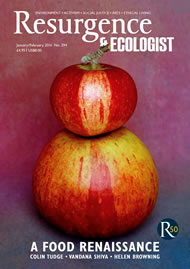When Malachy Tallack was 16, he lost his father in a car accident. Left alone by a lake in Sussex, where the two had been fishing, he was already dreading the worst, and, he writes, “part of me has never stopped waiting.” This haunting story of loss is more complicated than it appears: he had spent most of his childhood with his mother in Shetland, English and bullied, and had just abandoned the north to settle with his father and study music in London. This bold new direction, carved out of unhappiness, was instantly lost.
A few months later, feverish and depressed back in his room on Shetland, he had a vision of the 60th Parallel, of himself being carried around it “as though connected to a wire” through Norway, Sweden, Finland, St Petersburg, Siberia, Alaska, Canada and Greenland and back to the northernmost point of the British Isles. All these places are challenged by their terrestrial position: it makes them interesting, even exotic, and introduces a certain element of mutual belonging. “At sixty degrees, Shetland is as central as anywhere and everywhere else.”
But it’s an arbitrary line with a total lack of “natural relevance”. When Tallack finally follows it for real, many years later, his grief is still with him, if seasoned into a bewildering sense, not just of loss, but also of not knowing where he truly belongs. This account of his journey is, in that sense, a proper quest. It is written in a modest, unassuming tone that is nevertheless vivid and sensual; he completely avoids self-pity or emotive self-drama.
He travels westward from his home island, beginning with Greenland and ending with bouldery little Stolmen off Norway, whose moorland reminds him of Fair Isle, where he had, for three years, felt a sense of belonging. He meets the odd former friend (the Alaskan Jeff, fishing in a lake yet to be named), makes the occasional new acquaintance (Indigenous Canadians like Jacques, with their vision of interconnectedness), and sympathises with the locals in Greenland, who are bleakly caught between Inuit ways – completely to do with place – and homeless capitalism. But he remains, like all true solo travellers, fundamentally alone, and even, at times, lonely.
Much travel writing is either charmless or makes us feel inadequate. Tallack’s aim, however, is not to show off. He simply dwells on both the reality of where he is and the way it affects him inside. His philosophical musings are always earned, and he has the knack of summing up a place without short-changing it. “Seward”, he says of a tourist town in Alaska, “has become what it is because of its proximity to what it is not.” Wilderness, in this case. The 60th Parallel sweeps mostly through Nature at its most forbidding (from ice and freezing ocean to Siberian tundra to bear-trodden forests), but Tallack is equally sensitive to the ultra-civilised places on its track. These include the prosperous state-within-a-state of Åland in Finland, and the cobbled streets of youthful Uppsala (where, nevertheless, the fearsome Norse gods of paganism survived to the 11th century). His doubts and hesitations shape the narrative as well as the mood, one of the most delightful moments being a doze in the sunshine on a lichen-encrusted Greenland peak: “My fondness for the activity … in part explains why I am such a poor mountaineer.”
This kind of gentle immediacy perhaps explains why the chapter on Siberia, which Tallack had only visited as a much younger man, is overdependent on nostalgic memories and historical cliché: on my own recent trip there, despite visiting a preserved labour camp, I didn’t find that its “appalling history … clings to the land”. Far more effective was his account of St Petersburg: acting the flâneur for weeks, he finds calm pockets in a noisy, frantic city built impossibly (and at great human cost) over a swamp. Here he draws us into his memories of Prague as a newly fledged graduate, where he first recognised an inner bond with Shetland, feeling this again as he sails back towards it on the last leg of his journey. But this, as the surprising last chapter shows, is by no means the end of the story. Sixty Degrees North has the plangency of the songs of Gravenhurst: ethereal as well as down-to-earth and immeasurably sad. Tallack is left with no answers: only the quiet affirmation of the quest itself.







